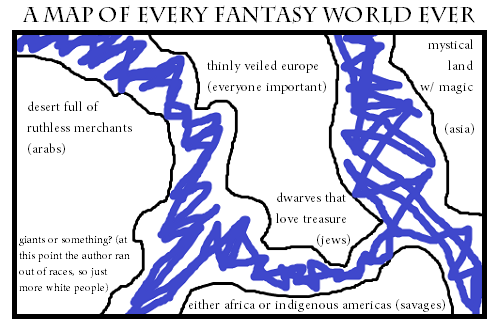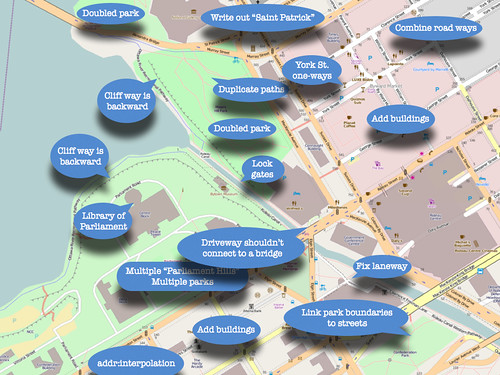The Farthing Party map panel (see previous entry) came off surprisingly well. I was actually shocked to discover that what I thought were my controversial thoughts about maps were actually not that controversial: I knew it was going to be a good panel when both Lila and Emmet said in their opening remarks that they were opposed in principle to fantasy maps.
Month: September 2011
Maps in Science Fiction and Fantasy
I mentioned this on Facebook, Google+ and Twitter yesterday, but I didn’t mention it here: I’ve created a project page for my research into the use of maps in fantasy and science fiction, and it’s now more or less complete enough to share with you. So far all it has is an introduction and a reading list that includes many articles, blog posts and stories I’ve mentioned before. It will grow and change as I learn more things.
On a related note, I’ll be on a panel about maps at Farthing Party tomorrow (“Maps and territories: What’s good and bad about the maps in our fiction, and why are they there in the first place?”) which I’m hoping will generate all sorts of ideas and things to check out. I’ll probably talk too much, of course, but I want to take lots of notes, too.
Jerry’s Map
Jerry Gretzinger’s map began as a little doodle. Then it began to take on a life of its own. Jerry uses a deck of cards to determine how the map is revised, with near-mystical results. “Yes, it’s alive. It changes. My hand puts the paint on the paper and then I step back and say, ‘Wow, look at that,’ as though I was not the perpetrator. I’m just the observer.” I could see myself having this much fun. Via MetaFilter.
OpenStreetMap in Ottawa
I nearly forgot to mention that last Sunday I gave a presentation on the state of OpenStreetMap in Ottawa to the SummerCamp 2011 Mapping Party. It was a small group — five of us, the majority of whom knew more about the subject than I did — and, due to technical snafus with the meeting location, was held in a Bridgehead coffee shop on Bank Street. All the same, my spiel was well received. I made three points in the presentation: that OpenStreetMap was a lot less complete than some make it out to be; that the OSM map of Ottawa needs a lot of work; and here’s what to do about it.
I suppose that I could make the slideshow available if you’re really interested, but my presentations tend to be talks illustrated by slides, rather than read-the-slides, so without me talking it through it’d be kind of confusing. But here’s the penultimate slide, which shows a screencap of OSM’s map of downtown Ottawa, with things that need fixing helpfully labelled.
You’ll be happy to know that many of these things have since been fixed.


